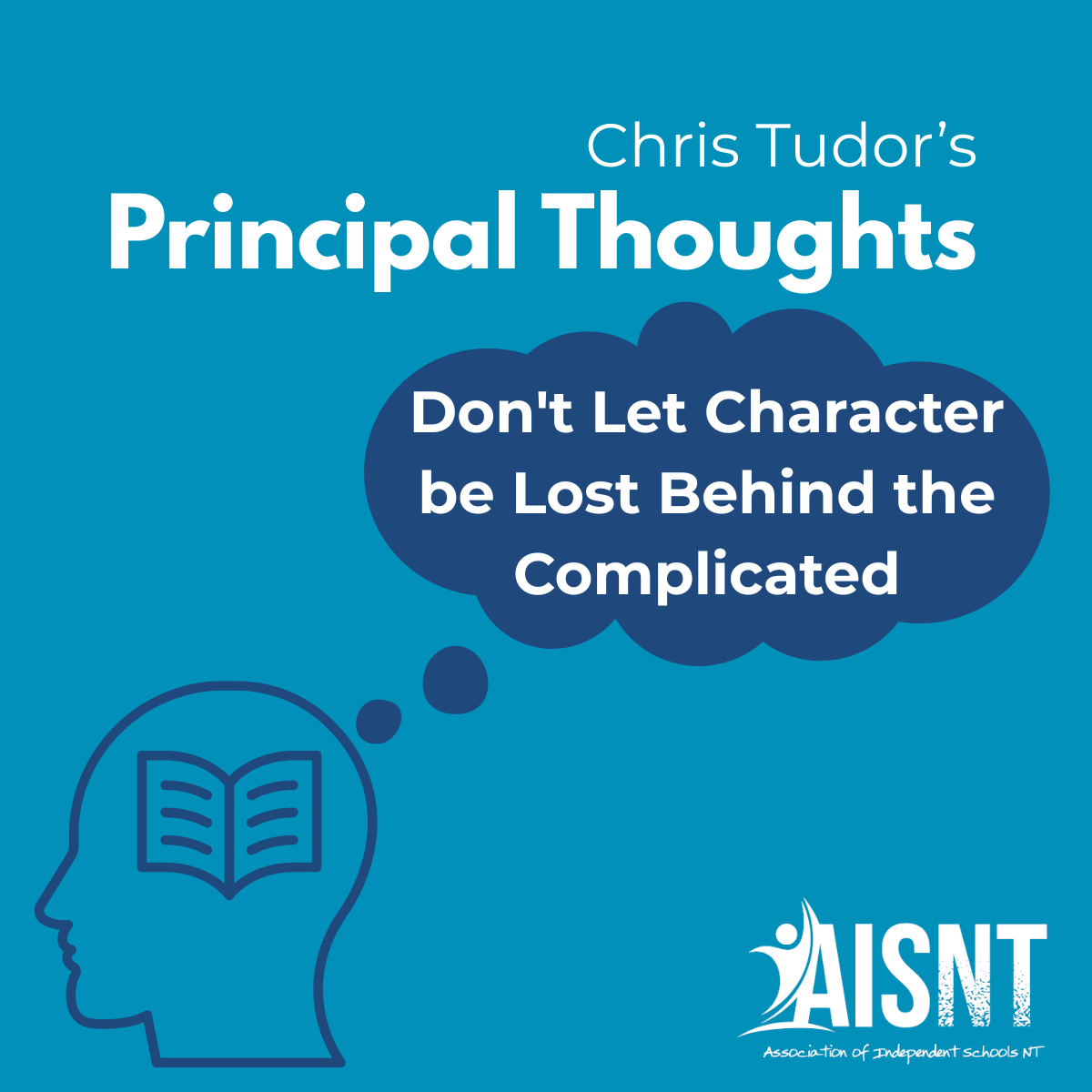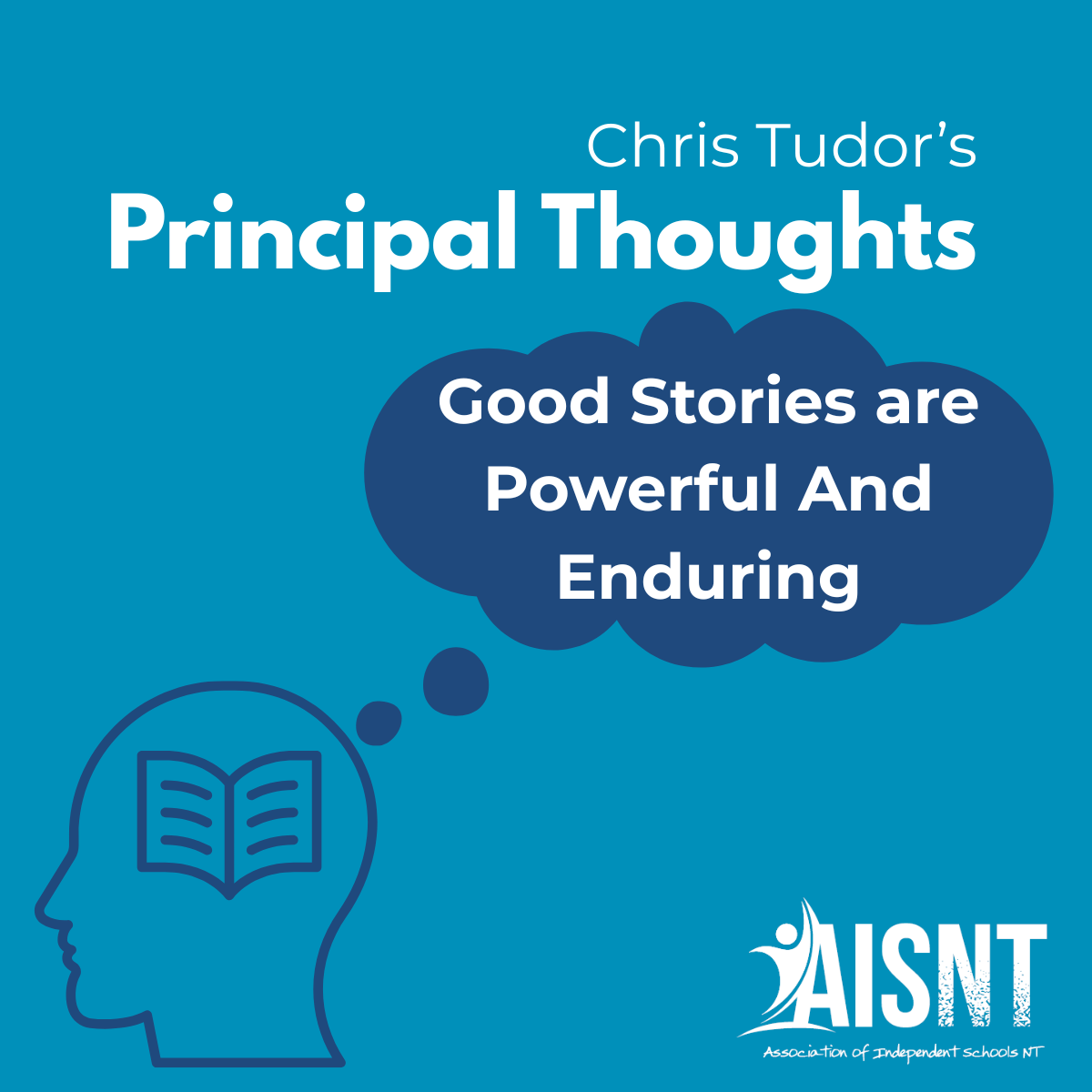Reflect & Change
Life as a principal is so busy! The endless challenge is always to maintain sharp focus on what is considered to be important. The golden list of importance obviously is fluid because circumstances are also in flux. However, I always valued help to maintain focus most welcome. I’m a visual person so if I can see it, I’m OK.
I know that lots of staff and students are helped to learn or remember more effectively if there is a visual prompt. My study (I didn’t like the word office but that’s just me) was filled with items which were special to me and which I could use to help present ideas and also prompt my own thinking. I enjoyed speaking to students at assemblies and I used so many of these idiosyncratic items from my office to help support assembly talks.
I remember my early days of teaching when a principal’s role at assembly seemed to be criticising students on a weekly basis. As a young teacher, standing to the side to help maintain control, it was not hard to see the pupils’ eyes glaze over even before the principal commenced the usual, negative presentation. To me the assembly talk had to have positive substance, be thought provoking and hopefully listened to. A bad night would be awakening from a nightmare where I, addressing the assembly caused young eyes to glaze over. Sleep after that was seldom possible.
Back to the many idiosyncratic items. Having some of these visible in my office helped spark my imagination and purposeful, creative thinking. Amongst many others they included: the bible, my dog, cricket ball, cricket bat, brass pot, glass half full, picnic basket, genuine mountaineering ice axe, donkey engine, my grandfather’s trench coat complete with bullet holes in it from World War 1, guitar with one string untuned, ship’s wheel, gold balance, two carafes (one antique), climbing rope, boot clean and boot dirty, mobile phone, climbing carabiner, etc etc.Lots of fun in its own way!
Actually taking these to assembly was part of the process of attracting attention. If attention is not accomplished at the start then the value of the talk will be well and truely lost. Giving assembly talks is one of the aspects of my life as a principal I do miss in retirement.
Years ago, before the annual Presentation night, I was reflecting on what I might say which hopefully would be useful to the students and maybe the parents. As was the want of being strongly MBTI defined as a “P”, this was being prepared at the last minute- not necessarily to be recommended. Warnings from my own children, who had been students at the school, rang loud and strong in my head. “Don’t speak for too long Dad or you’ll lose them”. My dog Sketch, who was the official school dog and attended all assemblies, looked up at me with her head on the side seeming to say the same thing. So I had my clear directions on necessary limitations- but what to say?
My mind wandered over the many speeches I had made, picking my way through the mists of time. I was pleased at how much I had put into encouraging students to have a go, to make it happen, tackle one mountain and then set sights on the next, to take opportunity and do their best and to really believe in their value as individuals and of course, not forgetting to love their neighbor as themselves and to contribute to the world.
Suddenly the lights started flashing, Sketch started blinking and I realised, what I had failed to emphasise, was that once a person had achieved, it was then paramount for them to take time to reflect on that achievement, to be proud of it and to bask in its encouraging warmth. To do this is simply something really important, I believe, for the human psyche and spirit. It is fundamental to personal well being but in Australia not well practised. Achievement is not something to be denied in false or practiced modesty but something to be celebrated. I was concerned often when asking a student, having difficulties, what they were not so good at, I would get a ready litany. However asking them what they were good at, resulted in silence or a meagre trickle of faint or apologetic information.
And so the direction of my speech for the annual presentation night was set. Sketch, always in tune with my mood, smiled reassuringly and wagged her tail. The presentation night talk went well and I felt pleased that I had recognised something I should have been saying for ages and now it had become a permanent message of mine, I would definitely and enthusiastically pass on.
Providentially, at Christmas some time later, my oldest, knowing my passion for steam trains, gave me a wonderful present - a mini electric train, complete, in an exciting well decorated box. It was not a cheap battery one but a genuine “plug in”. Instantly I knew the important job this little engine was destined to perform.
.
Once back in my study I set it up on the table that sat in the centre of my study. It only took up the central part of the round table which continued to remain thoroughly useable. Key was the layout - a circle of tiny rails which had in it a bridge over which the train would travel, but first struggling somewhat to make its way up the gradient to the start of this structure. Once there it smiled in relief, pleased to be on the level ground as it crossed the bridge. Then, no longer needing to chant “I think I can,” thoroughly enjoying the journey down the far side. Thus was created my key illustration to all who entered my study: tackle the journey uphill with determination, then really saver the relief when the top is reached. Then always enjoy the journey down the hill and be conscious of your right to enjoy it, understanding this reward which is a celebration of YOUR achievement. It is then that the next challenge can be considered but not before the reward is appreciated..
Until the little train gave up the ghost, this remained as a key teaching tool, readily understood by year 7s to 12s alike. It was also a great discussion starter and good to engage staff on a random chance.I’m also a great believer in the eccentric providing a fertile passage into the memory.
Probably, most essential, was that every time I walked into my study and saw the train it reminded me of the importance of explaining to students at large how vital it was for them to celebrate and enjoy their successes. When the train, after many months had gone, the place where it had been, a little like its ghost, reminded me of this important concept and my sworn duty to promote it. Sadly by this time Sketch had passed on, but her two Kelpie successors Rukkus and Bunya wagged their tails - they were happy because the students were happy. We as teachers are also happy when our students are happy.
Chris Tudor
AISNT Historian & Principal Liaison



